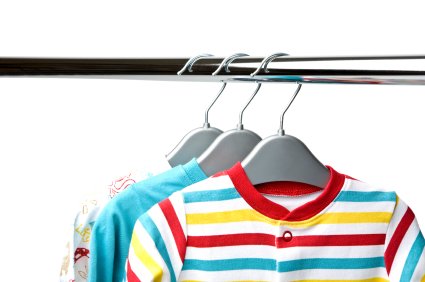
Cautious outlook for US fashion industry
A survey of 34 executives from the leading fashion and apparel brands, retailers, importers, and wholesalers in the US shows that U.S. industry executives are most concerned about the impact of trade protectionism, risk management, and border adjustment tax proposal

21st July 2017
Knitting Industry
|
Washington, DC
The study shows that U.S. industry executives are most concerned about the impact of trade protectionism, risk management, and border adjustment tax proposal
While most executives are optimistic about the five-year outlook for the fashion industry, the percentage fell from 92.3% in 2016 to 71% in 2017—a record low since the association started conducting the study in 2014.
According to the association the decline could be explained by the rise of new challenges for the industry—specifically, the ‘protectionist trade policy agenda in the United States’, which executives rank as their top challenge this year, up from being ranked the number ten challenge last year.
Conducted in conjunction with Dr. Sheng Lu, Assistant Professor at University of Delaware Department of Fashion & Apparel Studies, the survey asked respondents about the business outlook, sourcing practices, utilization of Free Trade Agreements and preference programs, and views on trade policy.
Other key findings
Executives are more concerned about trade protectionism, market competition from e-commerce, and supply chain risk than they are about cost; “increasing production or sourcing cost” dropped from the number two concern in 2016 to the number seven concern in 2017.
Only 36% of executives expect to increase sourcing from Vietnam, compared to 56% last year; this is likely due to the United States’ withdrawal from the Trans-Pacific Partnership.
Among all sourcing destinations examined this year, Bangladesh is considered the most competitive in terms of price—but also the riskiest in terms of trade compliance. Free trade agreements remain underutilized; only the North American Free Trade Agreement (NAFTA) is utilized by more than 50% of companies surveyed.
Ethical sourcing and sustainability are given more weight in sourcing decisions, with 87.5% saying these issues have become more important in sourcing decisions today versus five years ago; 100% of companies surveyed audit their suppliers. It’s unanimous: 100% of respondents oppose the U.S. border adjustment tax (BAT) proposal.
The survey was conducted between April 2017 and May 2017. In terms of business size, 68% have more than 1000 employees, including 58% with more than 3000 employees; an additional 19% have 101-500 employees. This suggests the findings well reflect the views of the most influential players in the U.S. fashion industry.
The full study is available for download here.
Further information
Contact: Samantha Sault, USFIA Vice President of Communications, at [email protected].

Business intelligence for the fibre, textiles and apparel industries: technologies, innovations, markets, investments, trade policy, sourcing, strategy...
Find out more